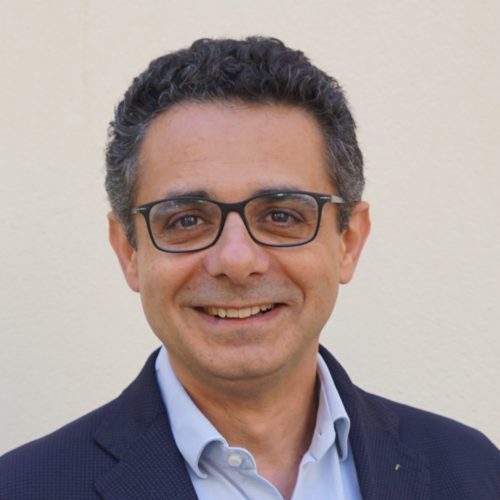NEW IDEAS IN COMPLEXITY SCIENCE
On May 24th, 2018, the First External Faculty Meeting of the Hub started with a public conference.
In short talks complexity scientists from all around globe shared their visions on the question “Complexity: Where do we go from here?”
What are the open, the most pressing, the most promising questions to an understanding of complexity and Big Data?
Find the talks of all conference participants (in order of appearance) on our Youtube channel in the playlist of the conference.
An overview with photographs of the event and links to all available slides can be found here.
VITTORIO LORETO
“SCIENTISTS HAVE A RESPONSIBILITY TO TACKLE CHALLENGES”
In his talk, Vittorio Loreto, a professor of physics of complex systems at Sapienza University of Rome, says that scientists must rethink how they do science, and move away from competitive science to a more cooperative way of doing things.
Scientists, he says, have a responsibility to tackle challenges, and the necessary means to do so. The main focus is often on data and artificial intelligence, by which he means all the tools used to analyse data and form it into information and knowledge, such as models. What is missing, however, is human intelligence.
“We need our ability to read the environment, come up with generalisations of what we see and then come up with modelling schemes,” says Vittorio.
Another way scientists can make use of human intelligence is through participation gaming. For example, one experiment challenged attendees of a conference to construct a city with toy building blocks. Activities were monitored with cameras and sensors and the data fed into a model to assess the success of the city’s development. The monitoring system fed this information back to participants, who could then come up with new solutions for the city.
It is possible to use data from such games to assess the present and test new scenarios. However, if the models are wrong, the data will be wrong too. Data, artificial intelligence and human intelligence should always be joined.
“The tools we have in complexity now are very, very interesting. They are in the right combination to address important questions,” says Vittorio. “I guess we should be brave in this and move away from a reward system in which our reward is yet another publication or yet another citation.” And he concludes: “We should be less selfish.”
See the video in full lenght here:

